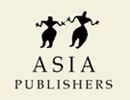New magazine brings Asian writers together
By Kim Hyun
Anybody browsing through a bookstore in South Korea will notice a cosmopolitan range of publications from New York, London or even Buenos Aires. Other than books and magazines from China and Japan, however, few texts are available from fellow Asian countries, a continent of 47 countries.
To counter the situation in which Asians rarely read literature by writers from other countries in the region, a group of Korean writers and critics have gathered to publish a quarterly journal in Seoul that brings together literary works by a range of Asian writers.
"Asia," published for the first time last month with contributions from 11 countries, offers readers a first-hand look from local Asian perspectives, some of which are quite different from the way western writers have reflected on the region.
"Having grown up reading Western texts, we see Asia through the western point of view. Asian readers don't recognize Asian writers until they are recognized by the West, said Bang Hyun-seok, a novelist and literature professor at Seoul's Chung-Ang University who is executive editor of the journal.
"What we promote is a rainbow Asia. You need different colors together to make the beauty," he said, "We don't try to define Asia as one group, which was the way the West saw it in the 20th century. Every country is different, and we acknowledge these differences and try to find the way they balance each other."
The 392-page journal is the first literary attempt in South Korea to shed light on intellectual currents and cultural trends in Asian countries. It presents each novel, poetry or essay both in Korean and English -- the alternative to scores of different languages in the region -- written by both established writers and emerging talents.
Some of the people and places featured in the magazine are portrayed quite differently to how they have been represented in the past by authors writing from outside of the local culture they aim to depict.
Bang Hyun-seok, executive editor, envisions the magazine as a rainbow of different colors.
In his engaging prose "Don't Push Me Too Much," Palestinian writer Alie Zein writes with no doubt that the former Palestinian leader Yasser Arafat was poisoned to death by the Israelis, a belief that was carried outside the country as nothing more than a rumor. In describing the local sentiment that gave rise to the surprise victory by the Islamic resistance movement Hamas in parliamentary elections in the fledgling state in January, Zein says it was the West's favoritism toward Israel that "pushed" the Palestinians towards extremism.
Besides political views, Zein's essay shines with unique local expressions. In referring to how Mahmoud Abbas, the former Palestine prime minister, lost power while seeking reconciliation with Israel, he writes how the Israelis "put him in the toilet and flushed." When describing how a lack of credible political choices forced him to overlook corruption, Zein wrote, "I closed my nostrils and voted for Fatah."
To offer different perspectives on Asia, the journal has assigned one writer each from South Korea, China and Japan to discuss current affairs. Wang Zhongchen, a professor of Chinese literature at Chinghua University, offers his thoughts on Japanese Nobel-prize laureate Oe Kenzaburo's essay, which grappled with the issue of growing rightist sentiment in Japan that is seeking a revision of the country's pacifist Constitution.
Ha Jae-young, representing South Korea's emerging literary talent, presents a short story about a 20-something woman who makes a home for herself in a small basement one-room apartment, conducting all of her interactions with the outside world via the Internet.
Many Asian countries share a history of colonial occupation by foreign nations, as well as the years of military dictatorship that followed.
For Indonesia's best-known writer, Pramoedya Ananta Toer, who suffered 17 years in jail as a result of his resistance to military rule, South Korea mirrored the painful path his own country went through.
"Although I haven't looked well into the literature of Indonesia and other countries these days, I believe there are things that Indonesian literature and Korean literature share. They both have had the pain of colonial occupation," he said in an interview with the journal shortly before his death in April at the age of 81.
The journal seeks to expand its coverage to include countries like Myanmar, Laos and North Korea, whose literature is even less well known to the international community than books from other parts of Asia. The summer edition includes poems by Kim Cheol, a North Korean writer who gained much recognition at home with his poetry.
Bang said the journal hopes to shed light on North Korean literature in particular, but there are not many options for most writers working there under the ruling Workers' Party regime.
"The literary works in the North were difficult for people outside the country to relate to. But the North is certainly part of our major task," he said.
The next edition set for August will feature writers from Central Asia and India, he said.
hkim@yna.co.kr

 03/25
03/25 


















